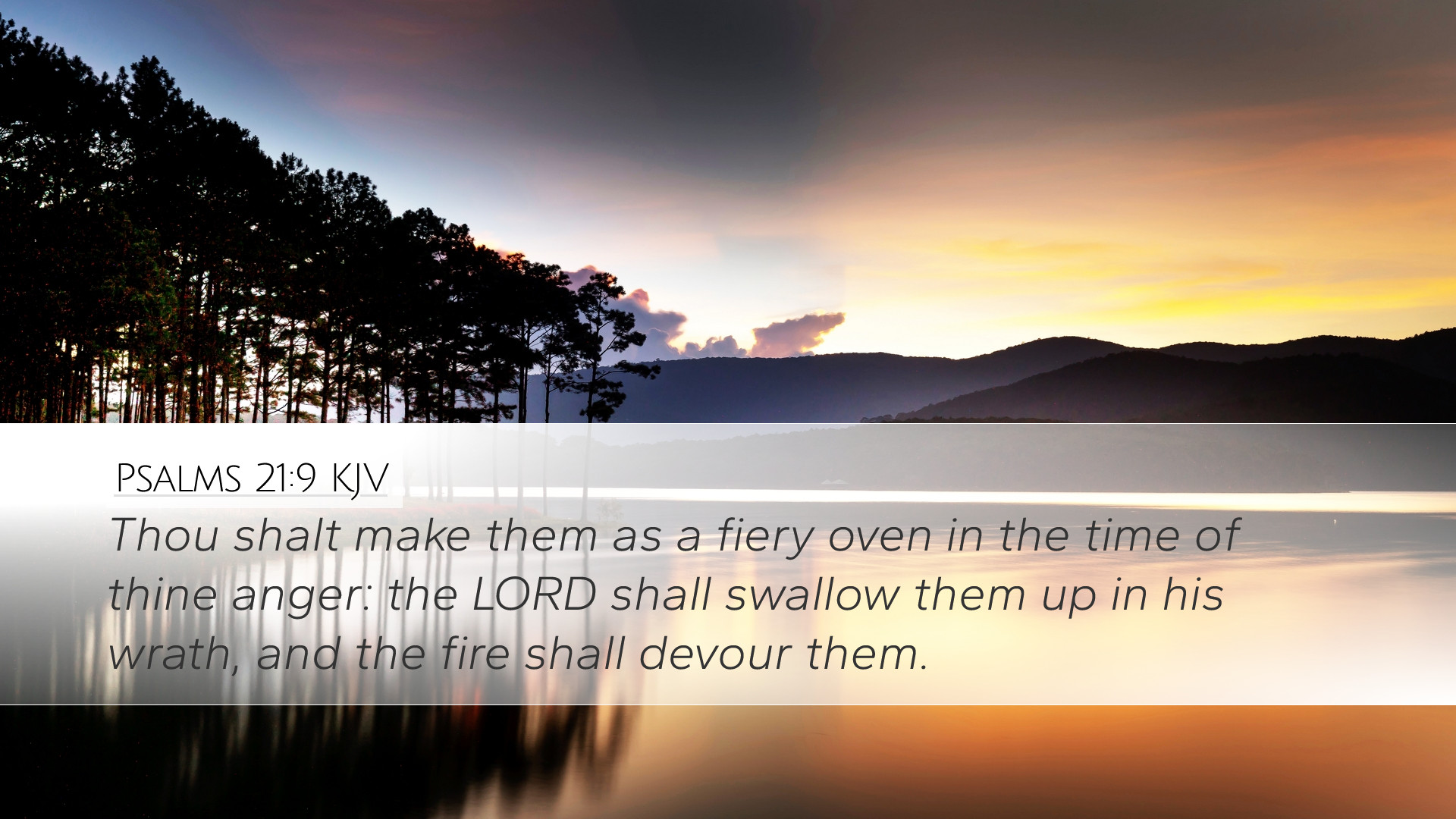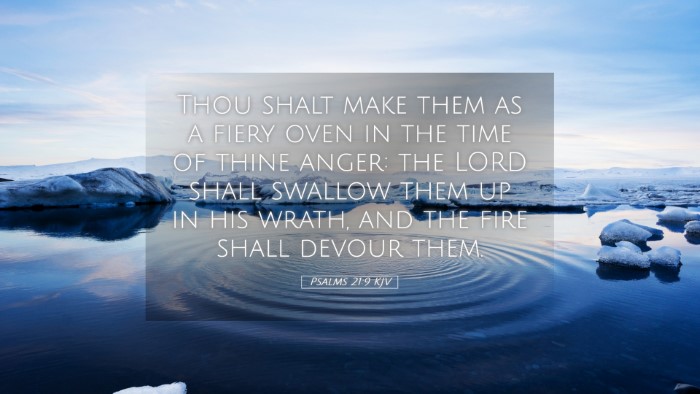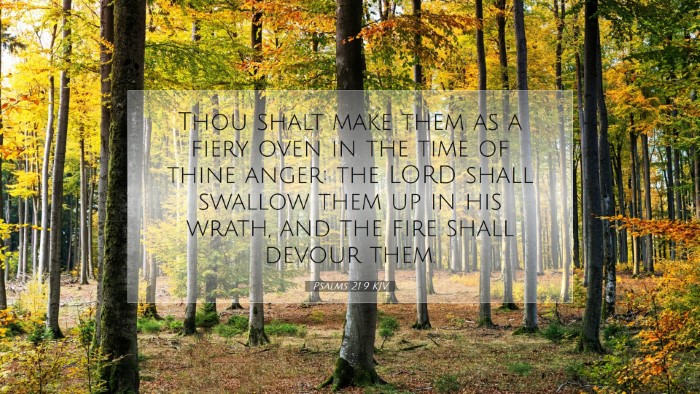Psalms 21:9 Commentary: Insights from Public Domain Commentaries
Verse: "Thou shalt make them as a fiery oven in the time of thine anger: the LORD shall swallow them up in his wrath, and the fire shall devour them."
Introduction
The Book of Psalms is a rich tapestry of prayers, songs, and reflections on the human experience in relation to God. Psalms 21:9 is a poignant verse that delves into the themes of divine justice and retribution. This commentary integrates insights from notable public domain resources, including Matthew Henry, Albert Barnes, and Adam Clarke. These esteemed commentators provide valuable interpretations that are crucial for pastors, students, theologians, and scholars.
Contextual Overview
Psalms 21 is attributed to King David, reflecting the joy and gratitude for the victories granted to him by God. As the psalm unfolds, it transitions from celebration to a solemn recognition of the judgment awaiting the foes of God. The portrayal of God's anger regarding wickedness is significant, manifesting the seriousness of divine retribution.
Exegesis of Psalms 21:9
Divine Fury and Judgment
Matthew Henry elaborates on the imagery present in this verse, particularly the metaphor of a “fiery oven” which signifies a place of intense heat and destruction. This imagery evokes the seriousness of God's wrath and serves as a reminder that God’s anger is not arbitrary but justly directed at those who oppose Him.
The Implications of Anger
Albert Barnes emphasizes that this verse illustrates that God's judgment is both thorough and consuming. The phrase “the LORD shall swallow them up in his wrath” suggests the totality with which God addresses evil, highlighting His sovereignty. Barnes also mentions that the fire devouring the wicked symbolizes not only physical destruction but also spiritual judgment, reinforcing that God’s righteousness ultimately prevails.
Historical Context and Applications
Adam Clarke offers a historical perspective, noting that during David’s time, enemies were often met with military force, but the psalmist reflects the deeper spiritual realities at play. Clarke firmly establishes that the metaphor elegantly represents both the immediate context of warfare and the ultimate eschatological judgment. The application for contemporary believers lies in recognizing the seriousness of sin and the necessity of repentance.
The Nature of God's Wrath
This verse delineates God's wrath not merely as emotion but as a righteous response to sin. Henry elucidates how God’s anger is continually directed against the wicked, suggesting that this is an expression of God’s justice. He aligns this with the broader biblical theme that God does not overlook sin nor does He ignore transgressions, thus ensuring that divine justice is meted out against all unrighteousness.
Theological Implications
The implications of this verse extend into important theological territories, particularly concerning God's holiness and justice. The divine characteristics revealed through this passage remind us of the necessity of a holy fear of God.
Grace and Justice
While Psalms 21:9 speaks compellingly of God's wrath, it also invites reflection on grace. Barnes points out that while God judges wickedness, He also offers repentance and mercy. Understanding both aspects encourages believers to engage in self-examination and to foster a holy reverence for God’s character, calling sinners to come to faith before judgment befalls them.
Conclusion
Psalms 21:9 encapsulates profound truths concerning God’s judgment and the fate of His enemies. The combined insights from Henry, Barnes, and Clarke indicate a multifaceted understanding of divine anger as it relates to justice and redemption. This verse calls believers to recognize the gravity of sin while affirming that God’s justice will ultimately triumph. As such, it remains integral for teaching within the church, for academic reflection, and for personal contemplation.


